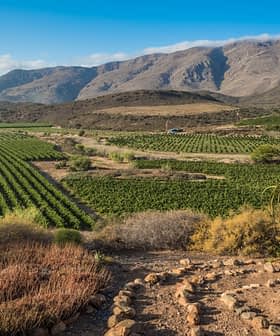A significant amount of global public funding for agriculture harms peoples’ health, degrades the environment, distorts food prices and it is highly inefficient, a United Nations report claims.
The U.N.’s Food and Agriculture Organization (FAO) said the funds are also often inequitable, favoring large agri-business over small farmers. The goal of the report is to lobby for new agricultural funding policies throughout the world.
Reforming agricultural policies is not about taking away support from farmers, but about repurposing it so that it rewards good practices.
The report found that 87 percent of that $540 billion (€457 billion) global public funding is doing more harm than good. Those global funds represent 15 percent of the total agricultural production value.
See Also:€100B in E.U. Spending Fails to Reduce Emissions in Ag Sector, Audit FindsOf that sum, about $294 billion (€249 billion) was provided in the form of price incentives and around $245 billion (€207 billion) for fiscal subsidies to farmers. Meanwhile, 70 percent has been tied to the production of a specific commodity.
“Only $110 billion (€93 billion) was used to fund transfers to the agriculture sector collectively, in the form of general services or public goods,” the report said.
The FAO, the U.N. Development Program and the U.N. Environment Program underlined that the report does not ask for public funding to stop, but to change.
The U.N. projections show that under current policies the global public funding to agriculture would top $1.8 trillion (€1.5 trillion) by 2030, which they argue would also cause further damage unless a clear path to reform is set.
“About 73 percent of that, $1.3 trillion (€1.1 trillion), would be in the form of border measures, which affect trade and domestic market prices,” the report reads. “The remaining 27 percent, $475 billion (€402 billion), would be in the form of fiscal subsidies that support agricultural producers and could continue to promote overuse of inputs and overproduction.”
Current public support to agriculture does not work, wrote the researchers. Malnourishment still affects 9.9 percent of the global population. In 2020, more than 720 million people in the world faced hunger and 2.37 billion people – about one-third of the global population – did not have access to adequate food.
Researchers have also highlighted that a healthy diet was out of reach in 2019 for at least three billion people on every continent.
“At the same time, population growth is resulting in an ever-increasing demand for food,” the FAO said. “These challenges have been exacerbated by the Covid-19 pandemic, which risks overwhelming food systems.”
Additionally, the report cites the findings of the 2020 Living Planet Report, produced by the World Wildlife Fund, which showed that “the conversion of land to agriculture has led to 70 percent of global biodiversity loss and half of all tree cover loss.”
“An estimated 1.9 million square kilometers of wild and undeveloped land has been lost due to agricultural land conversion,” the WWF added. “From 1980 to 2000, more than half of new land for agriculture in the tropics came from deforestation of intact forests. Likewise, for the period 2000 to 2010, it is estimated that 80 percent of deforestation in these areas was the result of conversion to agricultural and grazing lands.”
The new U.N. report comes in advance of several international summits, such as COP26, and aims to offers six tips to change the course of action to governments and institutions.
The researchers believe that if correctly devised and deployed, public funding to agriculture can “contribute to the end of poverty, overcome hunger and achieve food security while improving nutrition, promoting sustainable agriculture, consumption and production, mitigate the climate crisis, restore nature, limit pollution and reduce inequalities.”
“A transparent, multi-stakeholder approach is integral to the six-step repurposing process,” the report reads. “Transparency and inclusive consultations are critical to addressing institutional bottlenecks and vested interests that could hinder reform and the effective implementation of the strategy.”
“Reforming agricultural support raises concerns about reduced incomes and food affordability, and is likely to be opposed by farmers benefiting from the current system,” the report adds. “It is, therefore, crucial to communicate that reforming agricultural policies is not about taking away support from farmers, but about repurposing it so that it rewards good practices rather than perpetuating practices that threaten food systems stability, farmers’ welfare and the environment.”
“We urge countries to seize this opportunity and consider options for repurposing agricultural support,” the directors of the involved U.N. food agencies wrote in the introduction of the report.
“Parliamentarians, decision-makers, farmers, manufacturers, producers, distributors, consumers and all other agri-food systems stakeholders, including women, youth, Indigenous peoples and local communities – all of us must organize to steer our agricultural support away from its current trajectory,” the directors concluded.








